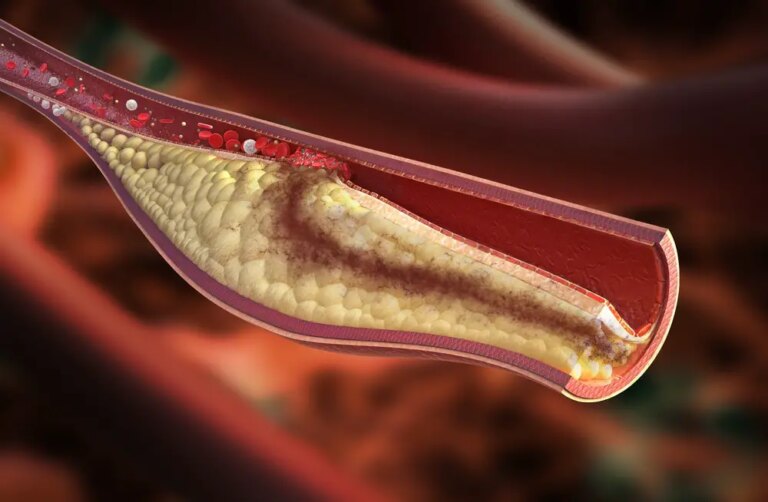Dementia is a growing concern globally, with estimated 55 million people affected in 2021, and this number is expected to rise to 82 million by 2030.
The progressive decline in cognitive function can be devastating, but what if some cases could be attributed to a simple vitamin deficiency?
The answer lies in the often-overlooked importance of vitamin B12, an essential nutrient for normal brain function. A deficiency in this vitamin can produce symptoms strikingly similar to dementia.
In this article, we’ll explore the role of vitamin B12 in the body, its connection to dementia, and how to address this deficiency through supplementation, a healthy lifestyle, and diet.
The Crucial Function of Vitamin B12 and the Causes of Deficiency
Vitamin B12 is crucial for the development and maintenance of nerve cells, the synthesis of DNA, and the production of red blood cells. It is most abundantly found in animal products, but certain microbes can also produce it. Low animal product consumption is the most common cause of vitamin B12 deficiency.
As we age, our hydrochloric acid (HCL) levels in the stomach decrease, which can lead to vitamin B12 deficiency. HCL is necessary to break down and absorb many vitamins and minerals. Antacids or Metformin use can further lower HCL levels, and acid reflux, often treated with antacids, can be a sign of low HCL.
Additionally, several medications and substances may cause dementia-like symptoms as side effects, including antacids, bladder medications, sleep aids, SSRIs, cholesterol medications, blood pressure medications, steroids, and alcohol. A deficiency in vitamin B1 (thiamine), zinc, and vitamin D can also lead to dementia-like symptoms.
Symptoms of Vitamin B12 Deficiency and Dementia
Recognizing the signs and symptoms of dementia and vitamin B12 deficiency is crucial to address the issue effectively.
Symptoms of dementia may include:
- Memory loss
- Difficulty communicating
- Confusion
- Disorientation
Vitamin B12 deficiency symptoms include:
- Fatigue
- Weakness
- Anemia
- Numbness or tingling in hands and feet
- Difficulty maintaining balance
- Memory problems
It is essential to consult with a healthcare professional if you or someone you know exhibits these symptoms.

The 4-Step Approach to Vitamin B12 Deficiency
A 2011 study in the journal “Neurology” found that vitamin B12-deficient individuals had smaller brain volumes and poorer cognitive performance, suggesting a link between B12 deficiency and dementia. Furthermore, nutrient deficiencies can shrink the hippocampus, leading to Alzheimer’s disease. Increasing ketones can help nourish a brain starved of fuel and nutrients.
Dr. Eric Berg DC, a renowned expert in this field, recommends a four-step approach to addressing dementia symptoms caused by nutrient deficiencies:
- Start healthy keto and intermittent fasting: This eating pattern encourages a higher intake of healthy fats and a lower intake of carbohydrates, which can help increase ketone levels and support brain function.
- Consume more fatty fish and seafood: These are excellent sources of vitamin B12 and omega-3 fatty acids, which can help reduce inflammation and support brain health.
- Consume more red meat: It is a rich source of vitamin B12, iron, and other essential nutrients that support cognitive function.
- Take betaine hydrochloride: This supplement can help increase stomach acidity and improve the absorption of vitamin B12 and other nutrients.
To ensure adequate vitamin B12 intake and prevent deficiency, it is important to consume a balanced diet that includes B12-rich foods such as red meat, poultry, fish, dairy products, and fortified cereals. Vegetarians and vegans may need to rely on supplementation or fortified plant-based products to meet their daily vitamin B12 requirements.
Lifestyle Changes to Prevent Vitamin B12 Deficiency
In addition to addressing vitamin B12 deficiency, maintaining a healthy lifestyle can also support brain health and cognitive function. Some practices for a brain-healthy lifestyle include:
- Engaging in regular physical activity, such as walking, swimming, or yoga
- Participating in mentally stimulating activities, like puzzles, reading, or learning new skills
- Managing stress through meditation, deep breathing exercises, or mindfulness practices
- Connecting with others and maintaining a strong social support network
- Eating a diet rich in antioxidants, such as fruits, vegetables, nuts, and seeds
- Drinking plenty of water to stay hydrated
- Prioritizing good sleep habits, including maintaining a consistent sleep schedule and creating a comfortable sleep environment
Other supplements that may support brain health and cognitive function include:
- Omega-3 fatty acids: Found in fish oil, krill oil, and plant-based sources like flaxseed and chia seeds.
- Vitamin D: Can be obtained through sun exposure, fortified foods, or supplementation. Keep in mind when supplementing with Vitamin D, you want to combine it with K2 for optimum absorption and a magnesium supplement.
- Ginkgo biloba: A herbal supplement known for its potential to improve cognitive function.
- Phosphatidylserine: A phospholipid found in high concentrations in the brain, which may help support memory and cognition.
It is important to consult with a healthcare professional before starting any new supplement regimen, as some supplements may interact with medications or have potential side effects.
I strongly advise all my patients who are concerned about dementia to adopt appropriate lifestyle changes. These include engaging in daily exercise, following a whole foods-based diet, and taking my, Vitamin B12 and Omega-3 supplement. Additionally, I recommend incorporating my Vitamin D + K2 and Magnesium Essentials supplements to further support cognitive health and overall well-being.
Early Detection and Intervention Are Key
Vitamin B12 deficiency can mimic dementia and have a significant impact on cognitive function. By adopting a healthy lifestyle, consuming a balanced diet rich in vitamin B12 and other essential nutrients, and using targeted supplementation, individuals can support their cognitive function and promote overall health.
Early detection and intervention are crucial to address potential vitamin B12 deficiency and its related dementia-like symptoms, so regular check-ups with a healthcare professional are highly recommended to monitor and maintain optimal health.

My Personal RX:
- Consult with a Healthcare Professional: It’s essential to consult with a healthcare provider to get a proper diagnosis and receive personalized advice tailored to your specific health needs.
- Adopt a Balanced Diet: Ensure that you’re eating foods rich in vitamin B12, such as red meat, poultry, fish, and dairy products. This will not only help address the deficiency but also improve overall brain health.
- Consider Supplementation: B12 Supplement: To ensure that you’re getting adequate amounts of this essential vitamin, consider taking my B12 Supplement. It’s formulated to provide optimal support, especially for those who might not get enough from their diet.
- Download the Protocol Guide: I’ve created a 50-page step-by-step Protocol Guide to help you start living a healthier lifestyle. This guide will provide you with actionable tips and strategies to improve your overall health, especially your cognitive function.
- Stay Active and Engaged: Keep your brain active. Engage in mentally stimulating activities, prioritize physical activity, and ensure you’re managing stress through relaxation techniques.
- Stay Informed: Always stay updated with the latest research, findings, and advice. Regularly reading articles, like the one you just went through, can offer a wealth of information that can empower you to take charge of your health.

Sources:
- https://www.who.int/news-room/fact-sheets/detail/dementia
- https://www.mdpi.com/2072-6643/2/3/299
- https://n.neurology.org/content/71/11/826
- https://www.pnas.org/content/110/23/9523
- https://www.ncbi.nlm.nih.gov/pmc/articles/PMC4429636/
- https://pubmed.ncbi.nlm.nih.gov/16216930/
- https://www.ncbi.nlm.nih.gov/books/NBK114310/



















